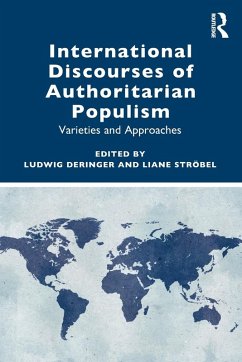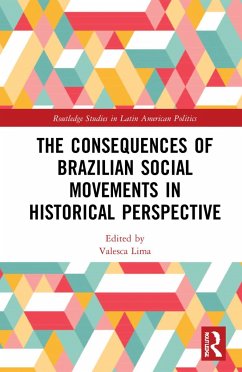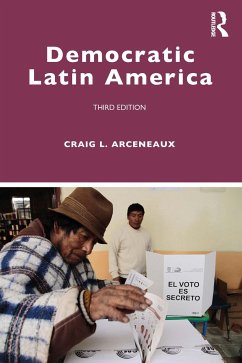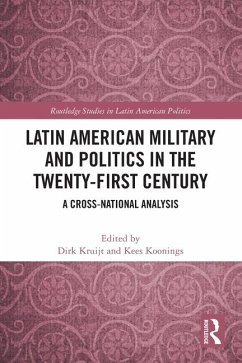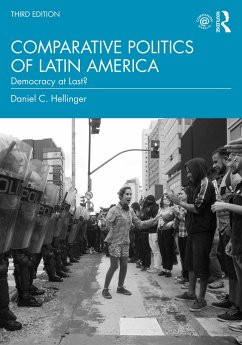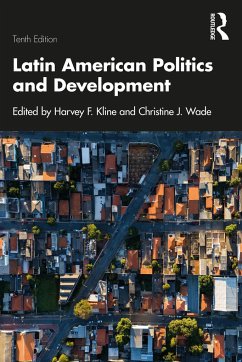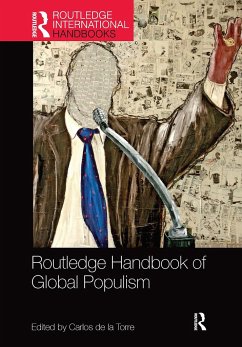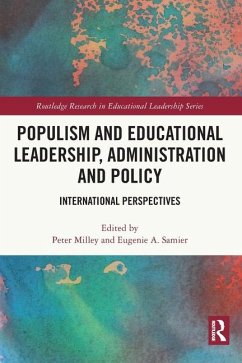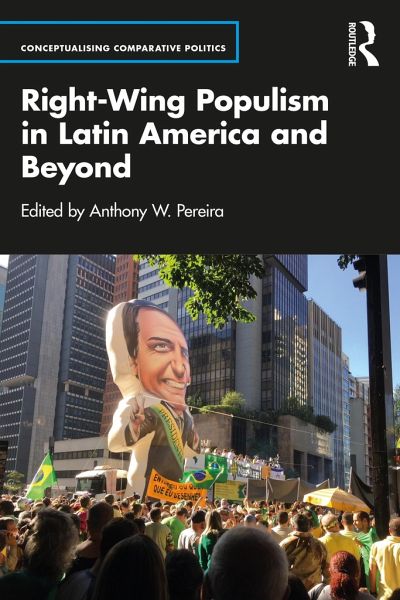
Right-Wing Populism in Latin America and Beyond
Versandkostenfrei!
Versandfertig in 6-10 Tagen
43,99 €
inkl. MwSt.
Weitere Ausgaben:

PAYBACK Punkte
22 °P sammeln!
With contributions from 22 scholars and empirical material from 29 countries within and beyond Latin America, this book identifies subtypes of populism to further understand right-wing populist movements, parties, leaders, and governments. It seeks to examine whether the term populism continues to have any validity and what relationship(s) it has to democracy.Part 1 is an exploration of populism as an analytical concept. It asks how populism can and should be defined; whether populism can be broken down into subtypes; and whether the use of the term within and beyond Latin America in recent sc...
With contributions from 22 scholars and empirical material from 29 countries within and beyond Latin America, this book identifies subtypes of populism to further understand right-wing populist movements, parties, leaders, and governments. It seeks to examine whether the term populism continues to have any validity and what relationship(s) it has to democracy.
Part 1 is an exploration of populism as an analytical concept. It asks how populism can and should be defined; whether populism can be broken down into subtypes; and whether the use of the term within and beyond Latin America in recent scholarship has been consistent.Part 2 focuses on political economy, and specifically whether political economy explanations of both the causes and consequences of right-wing populism fit recent cases in Latin America, Europe, and the Philippines.Part 3 examines institutions, and in particular institutions of coercion and digital communication. It contains chapter studies on various aspects of populism in Brazil, Spain, India, and Italy.Part 4 concerns the coronavirus pandemic and the specific case of right-wing populism in Brazil. It examines the Bolsonaro government's response to the coronavirus pandemic, and how that response exacerbated the health crisis and reduced the government's popularity.
Right-Wing Populism in Latin America and Beyond is a timely and socially relevant contribution to the understanding of contemporary challenges to democracy. It will be of interest to scholars, students, and practitioners eager to understand the rise in right-wing agendas across the globe.
Part 1 is an exploration of populism as an analytical concept. It asks how populism can and should be defined; whether populism can be broken down into subtypes; and whether the use of the term within and beyond Latin America in recent scholarship has been consistent.Part 2 focuses on political economy, and specifically whether political economy explanations of both the causes and consequences of right-wing populism fit recent cases in Latin America, Europe, and the Philippines.Part 3 examines institutions, and in particular institutions of coercion and digital communication. It contains chapter studies on various aspects of populism in Brazil, Spain, India, and Italy.Part 4 concerns the coronavirus pandemic and the specific case of right-wing populism in Brazil. It examines the Bolsonaro government's response to the coronavirus pandemic, and how that response exacerbated the health crisis and reduced the government's popularity.
Right-Wing Populism in Latin America and Beyond is a timely and socially relevant contribution to the understanding of contemporary challenges to democracy. It will be of interest to scholars, students, and practitioners eager to understand the rise in right-wing agendas across the globe.





